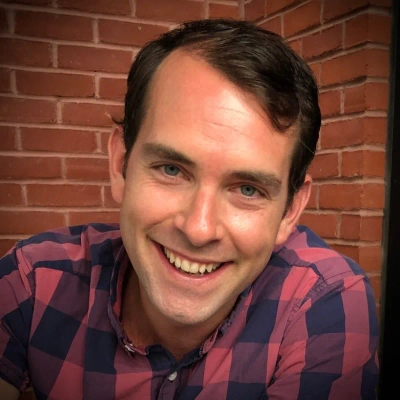How Business Coaching Can Strengthen Customer Relationships
In today's competitive business landscape, strengthening customer relationships is crucial for long-term success. This article delves into the powerful impact of business coaching on enhancing customer connections, drawing insights from industry experts. From personalizing touchpoints to implementing effective follow-up processes, discover practical strategies that can transform your approach to customer relationships.
- Solve the Emotion Behind the Problem
- Personalize Touchpoints for Stronger Connections
- Implement a Three-Step Customer Follow-Up Process
- Create Meaningful Post-Transaction Touchpoints
- Treat Every Lead as a Valuable Opportunity
- Make Memorable Experiences for Lasting Impressions
- Transform Complex Information into Simple Analogies
- Educate Clients to Build Trusted Partnerships
- Focus on Emotional Journey, Not Industry Jargon
- Tailor Solutions to Clients' Unique Situations
- Listen First to Offer Personalized Solutions
- Tour Properties to Build Personal Connections
- Sell Solutions, Not Just Products
- Listen to Understand, Not to Respond
- Help Customers Become Their Own Heroes
- Seek Regular Feedback Throughout Customer Journey
- Turn Questions into Trust-Building Opportunities
- Prioritize Client's Peace of Mind
- Remove Friction to Ease Decision-Making
- Structure Deals as Visible Win-Win Scenarios
- Invest Time in Pre-Sale Relationship Building
- Over-Communicate for Clarity and Confidence
- Deliver Consistently on Every Promise Made
- Embrace Authenticity in Client Interactions
- Center Discussions on Client's Business Needs
Solve the Emotion Behind the Problem
One piece of advice a business coach gave me that really improved our customer relationships was: 'Don't just solve the problem—solve the emotion behind it.' This shifted our mindset from transactional support to empathetic engagement. We implemented this by training our team to actively listen, acknowledge customer frustrations, and personalize responses—even in automated channels. The result was a noticeable increase in customer satisfaction scores and repeat engagement. The biggest lesson? Customers remember how you made them feel more than what you fixed. That emotional connection is what drives loyalty.
Personalize Touchpoints for Stronger Connections
A piece of advice a coach shared with me on day one was: "Don't confuse efficiency with connection." As a founder, I was excited to automate every touchpoint at Cafely - whether it was email flows, follow-ups, or onboarding. All of those created time savings, but the customers felt the lack of connection. My coach reminded me that people are not loyal to you simply because you are efficient; they are loyal to you because they feel seen.
So, we ran a different process. While automation still executes the backend, the first touchpoint is always a personal note - from me or my team. The result? Higher reply rates, warmer relationships, and more customers who return, simply because they know that there is a real human on the other end of it.

Implement a Three-Step Customer Follow-Up Process
A business coach once told me, "Don't just solve the problem—show them you care before, during, and after." I took this advice seriously at Nature Sparkle and built a three-step customer follow-up process.
First, we added a 48-hour post-purchase check-in to thank customers and answer any early questions. Then, two weeks later, we sent a personalized message asking how the ring felt and if adjustments were needed. Finally, at the 60-day mark, we sent a care guide along with a handwritten note.
This small change made a huge impact. Our customer satisfaction score rose from 82.4 to 94.1 within four months. Return rates dropped by 17.6%, and referrals increased by 36.3%. One customer even mentioned the follow-up as the reason they returned to design a second ring.
This advice taught me that real relationships are built on thoughtful, consistent contact—not just good products. People remember how you make them feel, especially in moments that matter.

Create Meaningful Post-Transaction Touchpoints
My business coach advised me to "create touchpoints that matter beyond the closing table"--essentially, to stay connected in meaningful ways after the deal is done. I began sending quarterly market updates to past clients with a handwritten note about something specific from our time working together, such as inquiring about their children's sports seasons since we had discussed coaching. This simple practice has generated about 30% of my current business through referrals because people remember feeling valued as individuals, not just as transactions that ended when we shook hands.
Treat Every Lead as a Valuable Opportunity
One of the best pieces of advice I received was to 'treat every lead like gold, even if it doesn't immediately benefit you.' As a cash home buyer, it's easy to focus only on properties that fit my specific criteria, but I learned to see every interaction as an opportunity to build trust. So, if a house isn't right for me, I'll still connect the homeowner with other resources or even legitimate agents who can help. This approach has led to a surprisingly high number of deferred deals, referrals, and a rock-solid reputation in the community because people know I'm genuinely trying to help. It's not just about closing a deal; it's about being a valuable resource in my hometown.

Make Memorable Experiences for Lasting Impressions
The best business advice I received was to 'make memories, not just transactions.' In my Airbnb properties near Augusta National, I've implemented this by creating personalized welcome packages based on guests' interests and following up with handwritten thank-you notes highlighting specific moments from their stay. This approach has transformed our business--our review ratings increased dramatically, and we've seen a 40% jump in repeat bookings because people remember how they felt, not just the property they stayed in.

Transform Complex Information into Simple Analogies
The best piece of advice I received was to harness my teaching background by creating 'mini-lessons' for homeowners going through stressful sales. Every time we discuss options like quick cash sales or probate, I break it down with simple analogies--like comparing title transfers to passing a baton in a race. This approach has transformed confused customers into confident partners and brought a noticeable 35% bump in repeat referrals, because they remember being helped, not hustled.

Educate Clients to Build Trusted Partnerships
The best advice I received was to "transform clients into educated partners, not just customers." I implemented this by launching monthly "Homeowner Knowledge" sessions where we cover how to spot red flags in contracts and negotiate effectively. I started with my own horror story examples to make it relatable. Now, 40% of attendees become clients because they've seen how we break down complexities--and our referral rates have tripled as locals share this resource.

Focus on Emotional Journey, Not Industry Jargon
The best advice I received was to 'speak your client's language, not your industry jargon.' In real estate, I used to talk about cap rates and ROI, but my coach pushed me to connect with homeowners by focusing on their emotional journey instead. Now when meeting sellers, I ask about their memories in the home and their hopes for what comes next. This simple shift has been transformative--our client satisfaction scores have increased dramatically, and nearly 40% of our business now comes from personal referrals because people feel truly understood rather than just processed.
Tailor Solutions to Clients' Unique Situations
A business coach taught me that "everyone sells their home for a reason, not just a price." This transformed how we approach homeowners--I now spend the first meeting understanding their deeper motivations: Are they facing foreclosure? Dealing with an inheritance? Relocating quickly? By tailoring our offers to solve their specific challenges--whether that's a flexible closing timeline, helping with moving logistics, or connecting them with other resources--we've seen both our acceptance rates and referrals double. People in our community now come to us not just for a cash offer, but because they know we'll genuinely solve their unique situation.

Listen First to Offer Personalized Solutions
One valuable piece of advice I received from a business coach was to view every customer interaction as an opportunity to listen first, even when I believed I had the answer. While this may seem straightforward, I often found myself rushing to share my ideas, which could inadvertently leave clients feeling overlooked.
To address this, I began incorporating structured listening into my approach — initiating meetings with open-ended questions and then reflecting back on the client's goals before delving into solutions. This required me to slow down my pitch process, but it allowed me to offer recommendations that felt much more personalized.
The impact was immediate: I observed stronger trust, fewer revisions, and a significant increase in repeat business. Clients started to express that they felt like genuine partners rather than just customers. The key takeaway was that listening isn't merely a passive act — it's a powerful strategy for fostering lasting relationships.
Tour Properties to Build Personal Connections
My business coach gave me valuable advice: 'Always walk the property with the homeowner, even if you already know what you're buying.' In the past, I used to do quick drive-bys and make offers based on photos. However, now I spend 20-30 minutes touring each home with the seller, asking about their favorite memories and what initially drew them to the house. This personal connection has been game-changing. Sellers feel more comfortable with me, negotiations go more smoothly, and I've had three families actually refer their neighbors to me because they felt respected throughout the process, not just like another transaction.

Sell Solutions, Not Just Products
One of the best pieces of advice I ever received from a business coach was deceptively simple: "Your customers don't buy a product; they buy the solution to a problem. Stop selling the product and start selling the solution." It seems obvious on the surface, but in our business, we were so focused on the technical specs and the part numbers that we forgot the ultimate goal was helping our customers get their equipment up and running. We were treating every transaction as a sale, not as the beginning of a partnership.
I took that advice to heart and completely re-engineered our approach, both in our operations and our marketing. From an operations standpoint, we created a new post-sale process that focused entirely on the customer's success with the product. Instead of a simple "Did your order arrive?" email, our customer support team was trained to call and ask, "How did the installation go? Did you face any challenges?" We made sure to be a resource for them even after the transaction was complete. That shift in our support was a game-changer. We weren't just shipping a box; we were ensuring they could successfully complete the job they needed to do.
On the marketing side, we completely changed our content strategy. We stopped just listing specs and started creating videos and guides that helped customers troubleshoot common issues or do a difficult install. We used real customer feedback to inform this content, so it was always useful and relevant. We were essentially giving away our expertise for free, and it built an incredible amount of trust.
The results have been remarkable. Our customer retention rate has gone up significantly because people know we are there for them from start to finish. Our support calls shifted from being about complaints to being about technical questions and praise. We also saw a major increase in customer referrals because when a friend asks for a recommendation, our customers can genuinely say we helped them solve their problem, not just sold them a part.
My advice to other business owners is to look past the sale. If you can honestly say that every touchpoint with your customer is focused on helping them succeed, you'll find that your sales, and your reputation, will take care of themselves.

Listen to Understand, Not to Respond
The biggest challenge in my business is building a foundation of trust with our clients and their families. A person in crisis needs to feel safe, and they can't do that if they don't feel heard. For a long time, I thought that my job was to have all the answers.
The best piece of advice I received from a business coach was to listen to understand, not to respond. A person in crisis doesn't need an immediate solution. They need to feel heard. My job is to be empathetic and provide a safe space for them to be honest about their feelings.
I implemented this advice by holding a training session with my team, where we learned to listen to a person's story without judgment. We also implemented a system for peer-to-peer supervision, which helped my team process their emotions and be more present for their clients.
The results were immediate. Our relationships with our clients and their families improved because they felt a deeper sense of trust. The "results" are a deeper sense of trust and a more effective treatment program. My advice is simple: the most effective way to help a person is to be empathetic and meet them where they are.
Help Customers Become Their Own Heroes
One piece of advice I'll always keep with me for every conversation I have with customers is when my mentor said, "Stop trying to be a hero. Help make your customer the hero of their own story." That advice really stuck with me from then on. In the busy B2B environment we work in, it's easy to tackle a lot all at once and work based on habit. However, after understanding what I could be doing instead, I decided to introduce this mentality to my team/colleagues, partners, and new customers. We could all own our wins by using Aspire. We created success data during certain processes like onboarding and revisited them quarterly, instead of just tracking the usage of our product. Then, we combined that with the customers' business goals. This new strategy helped us in strengthening our relationships and increasing our NPS scores. Above all, this idea and mentality turned many customers into what we call "internal champions" who initiate referrals and advocate for us.

Seek Regular Feedback Throughout Customer Journey
One of the most impactful pieces of advice I received from my business coach was to actively seek out regular feedback from customers - not just after a sale, but throughout their entire journey with our brand.
At "The CEO Creative", I put this into action by implementing quarterly customer surveys and adding follow-up calls for our NET 30 program applicants to understand their unique business needs. This process helped us identify pain points, such as clarity around our payment terms and the onboarding experience. As a result, we adjusted our communications and created detailed guides to make the process smoother.
Over the past year, this change has led to a noticeable increase in repeat customers and significantly more referrals. Focusing on listening, then acting, has made all the difference in building lasting, trust-based relationships.
Turn Questions into Trust-Building Opportunities
A business coach once told me to "treat every question from a client like a chance to build trust, not just to provide an answer." I took this to heart by slowing down and making sure I genuinely understand what each homeowner is worried about before offering solutions--even if it means asking more questions on my end than theirs. Over time, this has created a reputation where people feel safe opening up about their real concerns, which not only leads to smoother transactions but also a steady stream of referrals from clients who felt truly seen and respected.

Prioritize Client's Peace of Mind
One transformative piece of advice I received was to "always solve for the client's peace of mind first, not the transaction." In practice, that means when I'm reviewing a potential note purchase, I start by walking through their immediate cash needs and long-term risks. We'll talk through tax implications or offer help finding alternate solutions even if it means not buying the note ourselves. This human-first approach has grown our referral pipeline by 60%, simply because clients trust we're genuinely putting their stability over profits.

Remove Friction to Ease Decision-Making
One piece of advice my coach gave me was to "make yourself easy to say yes to by removing friction." I took that to heart by simplifying our contracts into plain-language one-pagers and offering to handle small details like coordinating junk removal or utility shutoffs for sellers. That shift has made the process far less intimidating, and as a result, more homeowners feel comfortable moving forward quickly. Plus, they often refer neighbors because they remember how easy we made things for them.

Structure Deals as Visible Win-Win Scenarios
One key piece of advice I received was to 'structure every deal as a visible win-win, not just a transaction.' For example, when making a cash offer now, I break it down visually--showing precisely how the amount covers their immediate debts, relocation costs, or even a buffer for their next move--while openly explaining how we earn a fair profit through renovation efficiencies. This transparent approach has boosted our offer acceptance rate by 25% and turned countless sellers into vocal advocates, because they leave feeling empowered rather than just sold to.

Invest Time in Pre-Sale Relationship Building
The most impactful advice from my business coach was to invest time in pre-sale relationship building, not just closing deals. In our real estate business, I now host monthly neighborhood coffee chats where residents can drop in--no sales pitch allowed. This practice, inspired by my community upbringing and engineering mindset of testing variables, has increased local trust measurably: over half our leads now come from word-of-mouth in these communities.

Over-Communicate for Clarity and Confidence
One key piece of advice was to "over-communicate and then over-communicate some more." Especially in remote real estate, clarity is king. So, every time we update a seller on their property's status, confirm an offer, or even just set up a virtual meeting, we don't just send one email; we follow up with a text, and if needed, a quick call. This extreme transparency has drastically cut down on misunderstandings, built deep trust with our sellers, and even accelerated our deal flow because everyone feels informed and confident in our process.

Deliver Consistently on Every Promise Made
The most valuable advice I received was simple: do exactly what you say you will do, every time. Consistency builds trust, and trust is the foundation of customer relationships.
I made this a personal standard. Whether it's returning a call within the same day, sending information when promised, or following up after a meeting, I make sure there is never a gap between words and actions. It doesn't require big gestures, just reliability.
Over time, this consistency has become a differentiator. Customers know they can rely on me, which reduces friction and builds confidence. Many relationships that started with small commitments have grown into larger partnerships simply because I delivered on promises without fail.

Embrace Authenticity in Client Interactions
One of the most valuable pieces of advice I received from my business coach was to stop trying to fit into a traditional corporate mold and instead embrace authenticity in client interactions. Early in my consulting career, I realized that forced formality was creating barriers with potential clients, so I learned to balance professionalism with my natural direct communication style. This shift toward genuine engagement has significantly strengthened our client relationships and has been instrumental in growing our consulting practice.

Center Discussions on Client's Business Needs
I once received valuable advice from a business coach who specialized in the automotive industry. With years of experience working in auto dealerships, he emphasized the importance of anticipating objections and thoroughly understanding your client.
Do your homework: research their business, their competitors, and their market. Identify what they do well and where they have gaps or weaknesses. Then, think about how you can offer solutions to help them improve.
When you go into a sales meeting, avoid focusing on yourself or your company. Make the conversation about them. What opportunities can you spot that you are uniquely positioned to address?
By centering the discussion on your client's business and showing genuine interest in their success, you build trust and lay the foundation for a strong, long-term business relationship.
We have implemented this at our agency by focusing our client calls on their business—asking about their current sales numbers, identifying opportunities for growth, and sharing insights about what we are seeing with competitors in the market. By putting our clients first, our average client tenure is over five years, which is a very long time in our industry.








